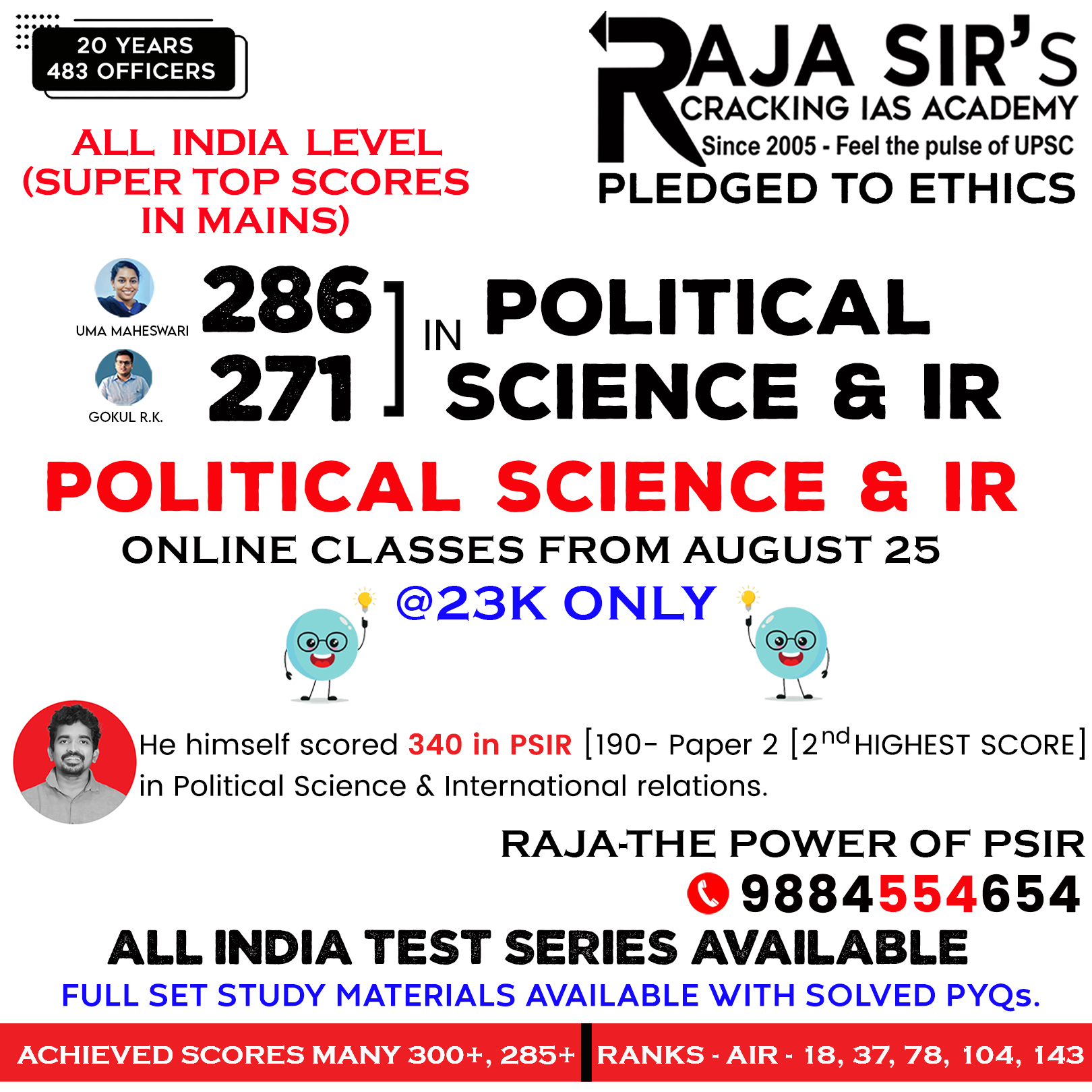- Home
- Prelims
- Mains
- Current Affairs
- Study Materials
- Test Series
 Latest News
Latest News
UPSC Mains 2025 General Studies–II (GS Paper 2) Question Paper
UPSC Mains Paper 2025 for GS 2 was conducted on 23rd August, 2025 between 2:30 pm to 5:30 PM. Candidates can download the PDF to get an understanding of the UPSC Exam 2025 and practice these questions for future upcoming exams. The UPSC Mains Essay Paper 2025 was conducted on 22nd August 2025 in the first shift from 9:00 AM to 12:00 PM and its PDF is also available.
The UPSC Mains Exam 2025 is scheduled to be held from 22nd August to 31st August 2025. This stage is the second and most crucial part of the UPSC Exam 2025. Only candidates who qualify the UPSC Prelims 2025 are eligible to appear for the Main Examination.
150 Words – 10 Marks
- Corrupt Practices under Representation of the People Act, 1951
Discuss the ‘corrupt practices’ for the purpose of the Representation of the People Act, 1951. Analyze whether the increase in the assets of the legislators and/or their associates, disproportionate to their known sources of income, would constitute ‘undue influence’ and consequently a corrupt practice.
- Administrative Tribunals vs. Court System
Comment on the need of administrative tribunals as compared to the court system. Assess the impact of the recent tribunal reforms through rationalization of tribunals made in 2021.
- Presidential Pardon Powers: India vs. USA
Compare and contrast the President’s power to pardon in India and in the USA. Are there any limits to it in both the countries? What are ‘preemptive pardons’?
- Jammu & Kashmir Legislative Assembly Post-2019
Discuss the nature of Jammu and Kashmir Legislative Assembly after the Jammu and Kashmir Reorganization Act, 2019. Briefly describe the powers and functions of the Assembly of the Union Territory of Jammu and Kashmir.
- Role of Attorney General of India
“The Attorney General of India plays a crucial role in guiding the legal framework of the Union Government and ensuring sound governance through legal counsel.” Discuss his responsibilities, rights and limitations in this regard.
- Women’s Social Capital and Empowerment
Women’s social capital complements in advancing empowerment and gender equity. Explain.
- E-Governance Biases
E-governance projects have a built-in bias towards technology and back-end integration than user-centric designs. Examine.
- Civil Society Organizations: Anti-State or Non-State?
Civil Society Organizations are often perceived as being anti-State actors than non-State actors. Do you agree? Justify.
- India-Africa Digital Partnership
India-Africa digital partnership is achieving mutual respect, co-development and long-term institutional partnerships. Elaborate.
- Sovereign Nationalism in Post-Cold War Era
“With the waning of globalization, post-Cold War world is becoming a site of sovereign nationalism.” Elucidate.
250 Words – 15 Marks
- Constitutional Morality and Judicial Balance
“Constitutional morality is the fulcrum which acts as an essential check upon the high functionaries and citizens alike…” Explain the concept of constitutional morality and its application to ensure balance between judicial independence and judicial accountability in India.
- Amending Power of Parliament
Indian Constitution has conferred the amending power on the ordinary legislative institutions with a few procedural hurdles. Examine the procedural and substantive limitations on the amending power of the Parliament to change the Constitution.
- Collegium System: India vs. USA
Discuss the evolution of collegium system in India. Critically examine the advantages and disadvantages of the system of appointment of the Judges of the Supreme Court of India and that of the USA.
- Centre-State Financial Relations
Examine the evolving pattern of Centre-State financial relations in the context of planned development in India. How far have the recent reforms impacted the fiscal federalism in India?
- Environmental Pressure Groups in India
What are environmental pressure groups? Discuss their role in raising awareness, influencing policies and advocating for environmental protection in India.
- Paradox of Poverty and Resource Inequality
Inequality in the ownership pattern of resources is one of the major causes of poverty. Discuss in the context of ‘paradox of poverty’.
- Development Models and Decision-Making
“In contemporary development models, decision-making and problem-solving responsibilities are not located close to the source of information and execution defeating the objectives of development.” Critically evaluate.
- Child Rights in the Digital Era
The National Commission for Protection of Child Rights has to address the challenges faced by children in the digital era. Examine the existing policies and suggest measures the Commission can initiate to tackle the issue.
- Energy Security and Foreign Policy
“Energy security constitutes the dominant kingpin of India’s foreign policy, and is linked with India’s overarching influence in Middle Eastern countries.” How would you integrate energy security with India’s foreign policy trajectories in the coming years?
- UN Reform and East-West Confrontation
“The reform process in the United Nations remains unresolved, because of the delicate imbalance of East and West and entanglement of the USA vs. Russo-Chinese alliance.” Examine and critically evaluate the East-West policy confrontations in this regard.











 General Studies
General Studies